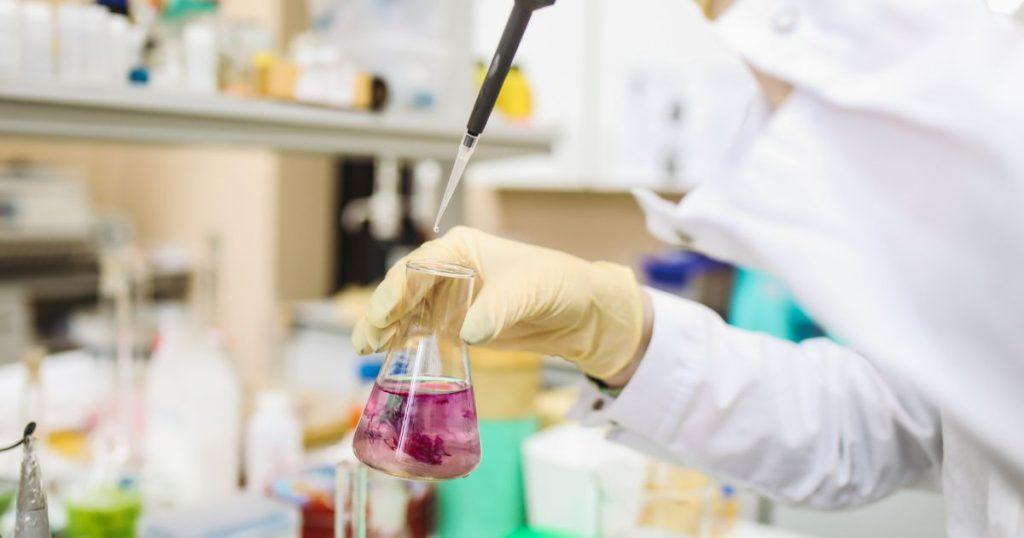Cancer Metabolism and Metabolic Reprogramming
Table of Contents
Cancer Metabolism – A Summary
| Key Concepts | Description |
|---|---|
| Biochemistry | The study of the chemical processes within living organisms, including the metabolic pathways that provide energy for life. |
| Cancer Metabolism | The alterations in metabolic pathways that allow cancer cells to support their rapid growth and proliferation. |
| Metabolic Reprogramming | The process by which cancer cells adapt their metabolism to survive and thrive, including changes in energy production and the synthesis of cellular components. |
| Warburg Effect | The phenomenon where cancer cells preferentially use glycolysis for energy production, even in the presence of oxygen. |
| Therapeutic Targets | Key components of cancer cell metabolism that can be targeted for therapy, including specific enzymes and transporters. |
| Future of Cancer Treatment | The potential for therapies targeting cancer metabolism to provide more effective and less toxic treatments for cancer. |
Diving into the world of biochemistry, we encounter the intriguing realm of “Cancer Metabolism and Metabolic Reprogramming”. It’s a dance of molecules, a survival strategy of cancer cells that’s as fascinating as it is complex. Stick around, and let’s unravel this biochemical mystery together.
Cancer cells are like metabolic chameleons, able to adapt and evolve to survive in even the harshest conditions.

Introduction
In the fascinating realm of biochemistry, one area that has been garnering significant attention is cancer metabolism and the concept of metabolic reprogramming. This is a world where cells, in their quest for survival, adapt and evolve, rewriting their metabolic pathways. It’s a dance of life and death, played out at a molecular level, and it’s a dance that we’re just beginning to understand. As we delve into this topic, we’ll explore the intricate mechanisms of cancer metabolism, the concept of metabolic reprogramming, and the profound implications these have for the future of cancer treatment.
Challenges in Targeting Cancer Metabolism
- The redundancy and flexibility of metabolic pathways
- The influence of the tumor microenvironment
- The need for strategies that can selectively target cancer cells without harming normal cells
Understanding Biochemistry and Cancer Metabolism
Before we delve into the intricacies of cancer metabolism, let’s take a moment to understand the broader field of biochemistry and its role in our health. Biochemistry is the study of the chemical processes that occur within living organisms. It’s a vast field, encompassing everything from the structure and function of molecules to the complex metabolic pathways that provide energy for life. Within this realm, cancer metabolism stands out as a particularly intriguing area of study. It’s here that we begin to see how cancer cells, in their relentless pursuit of growth, alter their metabolic pathways in ways that are fundamentally different from normal cells.
Biochemistry, in its essence, is like the backstage crew of a theater production, silently orchestrating the complex processes that keep the show – in this case, life – running smoothly. It’s a world where molecules are the stars, and their interactions form the plot. Now, imagine a character going rogue, breaking the established script – that’s what happens in cancer metabolism. Cancer cells, in their pursuit of immortality, rewrite their metabolic script, leading to a performance that’s as captivating as it is destructive.
This deviation from the norm is not a random act of rebellion. It’s a calculated move, a survival strategy. Cancer cells, like all living entities, need energy to grow and multiply. But their energy needs are much higher than normal cells. To meet these needs, they modify their metabolic pathways, a process akin to rerouting a city’s traffic system to ensure all roads lead to a single destination – in this case, growth and proliferation.
| Title: Cancer Metabolism |
|---|
| Normal Cells |
| Use glucose for energy in a process called glycolysis, followed by oxidative phosphorylation |
| Metabolic pathways are balanced to meet the needs of cell maintenance and division |
| Energy production is efficient but slower |
The Concept of Metabolic Reprogramming
Metabolic reprogramming might sound like a term straight out of a science fiction novel, but it’s very much a reality in the world of cancer biology. It’s like a survival manual for cancer cells, guiding them on how to adapt and thrive in the face of adversity. This manual is not written in stone; it’s dynamic, changing in response to the cell’s needs and the environment.
Imagine being in a maze, with multiple paths leading to the exit. Now, imagine if you could reshape the maze at will, creating new paths or blocking old ones to reach the exit faster. That’s what cancer cells do with their metabolism. They reshape their metabolic pathways, creating a maze that’s designed for one thing – survival. And understanding this maze, this metabolic reprogramming, could be our ticket to more effective cancer treatments.
| Title: Key Metabolic Pathways Altered in Cancer Cells |
|---|
| Glycolysis |
| Pentose Phosphate Pathway |
| Glutaminolysis |

The Role of Biochemistry in Cancer Metabolism
Biochemistry is our lens into the world of cancer metabolism. It’s through this lens that we see how cancer cells, in their quest for survival, bend the rules of biochemistry to their advantage. They’re like master chemists, tweaking reactions and modifying pathways to fuel their growth.
Consider a car engine, which needs fuel to run. Now, imagine if the engine could modify itself to run on different types of fuel, or even create its own fuel. That’s what cancer cells do. They modify their metabolic engines, enabling them to utilize different energy sources or even generate their own. This metabolic flexibility is a key survival strategy, and it’s one that we’re just beginning to understand.
Key Concepts in Cancer Metabolism
- The Warburg effect
- Metabolic reprogramming
- The role of oncogenes and tumor suppressor genes in regulating metabolism
- The interplay between metabolism and the tumor microenvironment

The Impact of Metabolic Reprogramming on Cancer Treatment
Metabolic reprogramming is not just an academic curiosity. It’s a concept with real-world implications, a concept that could revolutionize the way we treat cancer. Traditional cancer treatments, while effective, often come with a heavy price – severe side effects and the risk of developing resistance. But what if we could target the cancer cells without harming the normal cells? What if we could turn the cancer cells’ survival strategies against them?
That’s the promise of therapies targeting cancer metabolism. By understanding how cancer cells reprogram their metabolism, we can develop treatments that specifically target these alterations. These treatments could be more effective, less toxic, and less likely to lead to resistance. It’s a new frontier in cancer treatment, and it’s one that holds great promise for the future.
Potential Benefits of Targeting Cancer Metabolism
- The ability to exploit a fundamental difference between cancer cells and normal cells
- The potential to overcome resistance to traditional therapies
- The possibility of developing treatments with fewer side effects
Simplifying Complex Concepts: Cancer Metabolism in Everyday Terms
While the science behind cancer metabolism can be complex, it’s possible to understand these concepts in simpler, more relatable terms. Think of a city, with its complex network of roads and highways. Just as a city needs to efficiently manage traffic to function smoothly, a cell needs to efficiently manage its metabolic pathways to survive and grow. In cancer cells, these pathways are like highways that have been rerouted and supercharged to support rapid growth. Understanding these changes is like being able to read a map of the city, a map that could guide us to new ways of treating cancer.
Examples of Therapies Targeting Cancer Metabolism
- Inhibitors of glycolysis, such as 2-deoxyglucose
- Metformin, a diabetes drug that has been shown to inhibit cancer cell metabolism
- Agents that target the mitochondria, the powerhouses of the cell
Understanding the metabolic adaptations of cancer cells is like deciphering a secret code. Each discovery brings us one step closer to finding a cure.

Conclusion
As we journey through the complex world of biochemistry and cancer metabolism, it’s clear that these concepts are more than just academic interests – they hold the key to future breakthroughs in cancer treatment. The more we learn about the metabolic strategies of cancer cells, the closer we get to developing treatments that can effectively target these rogue cells. It’s a challenging and exciting field, and one that promises to transform our understanding of cancer.
Now that we’ve explored the fascinating world of cancer metabolism and metabolic reprogramming, I’d love to hear your thoughts and experiences. Have you encountered these concepts in your studies or research? How do you think our growing understanding of cancer metabolism will shape the future of cancer treatment? I invite you to join the conversation and share your insights.
Disclaimer: This article is intended for informational purposes only. It is not meant to be a substitute for professional medical advice, diagnosis, or treatment. Always seek the advice of your physician or other qualified health provider with any questions you may have regarding a medical condition.
For more insights into the world of biochemistry, feel free to explore the Biochemistry category on my blog. Also see my index page on Biochemistry
Also check out my other posts: Biochemical basis of autoimmune diseases and Biochemical aspects of cardiovascular diseases
Frequently Asked Questions
What is metabolic reprogramming in cancer?
Metabolic reprogramming in cancer refers to the alterations in metabolic pathways that cancer cells undergo to support their rapid growth and proliferation. This can involve changes in the way cells generate energy, build new cellular components, and interact with their environment.
What is metabolic pathways reprogramming?
Metabolic pathways reprogramming is a broader term that refers to changes in the metabolic pathways of a cell. In the context of cancer, this reprogramming often involves shifts in energy production and the synthesis of cellular components to support rapid cell growth and division.
What is metabolic reprogramming in the tumor microenvironment?
Metabolic reprogramming in the tumor microenvironment refers to the changes in metabolism that occur not only in cancer cells but also in the surrounding cells within a tumor. These changes can influence the behavior of cancer cells and contribute to tumor growth and progression.
What is the critical function of metabolic reprogramming in cancer metastasis?
Metabolic reprogramming plays a crucial role in cancer metastasis, which is the process by which cancer cells spread from the primary tumor to other parts of the body. The metabolic changes that occur in cancer cells can enhance their ability to survive and proliferate in new environments, facilitating the metastatic process.
Why do cancer cells rewire metabolism?
Cancer cells rewire their metabolism to support their rapid growth and proliferation. This can involve increasing the production of energy and the synthesis of cellular components, as well as adapting to the conditions within the tumor microenvironment.
What is the definition of metabolic programming?
Metabolic programming refers to the process by which a cell’s metabolic pathways are set or altered. This can be influenced by a variety of factors, including genetic changes, environmental conditions, and in the case of cancer, the needs of rapidly growing and dividing cells.
What is the role of metabolic reprogramming?
The role of metabolic reprogramming is to allow a cell to adapt its metabolism to meet its needs. In the context of cancer, metabolic reprogramming enables cancer cells to generate the energy and cellular components they need to support their rapid growth and proliferation.
What are the 2 types of metabolism?
The two main types of metabolism are catabolism and anabolism. Catabolism involves the breakdown of molecules to produce energy, while anabolism involves the synthesis of all compounds needed by the cells.
What are the 4 metabolic pathways?
The four main metabolic pathways are glycolysis, the citric acid cycle (also known as the Krebs cycle or TCA cycle), the pentose phosphate pathway, and oxidative phosphorylation. These pathways are involved in the breakdown of nutrients and the production of energy within cells.
Further reading
Cancer metabolic reprogramming: importance, main features …
Sean Schepers is a third-year Medical Technology student at Mahidol University with a passion for all things health and medicine. His journey into the world of medicine has led him to explore various fields. Sean's blog posts offer a unique perspective, combining his academic insights with personal experiences. When he's not studying or blogging, Sean enjoys keeping up with politics and planning his future career in medicine.
In addition to his studies, Sean serves as the chairman of the Rights, Liberties, and Welfare Committee, a role that reflects his commitment to advocacy and social justice. Beyond his academic pursuits, Sean offers tutoring services in English and Biology, further demonstrating his dedication to education and mentorship. His journey is one of continuous discovery, and he invites others to join him as he explores the dynamic and transformative world of medical technology.


